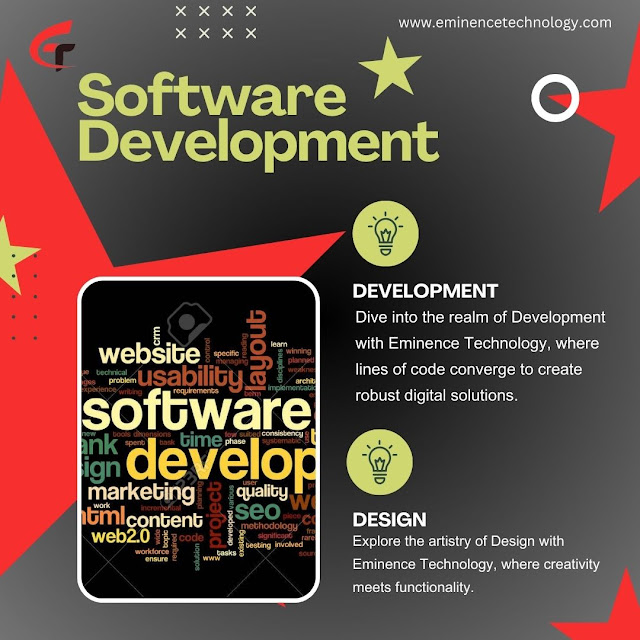Top Tools for Full Stack Developers
Introduction
Full stack development is a dynamic field that requires proficiency in multiple technologies, frameworks, and tools. Building web applications, mobile applications, or enterprise software revolves around having the right tools which will boost your productivity and efficiency.
In this article, we explore the top tools for full stack developers: frontend, backend, database, version control, and deployment.
Frontend Development Tools
1. React.js
React.js is one of the most popular JavaScript libraries for creating interactive user interfaces. Developed by Facebook, it has a component-based architecture that improves code reusability. Its virtual DOM improves performance, making it a favorite among full stack developers.
2. Vue.js
Vue.js is a progressive JavaScript framework that is easy to learn and highly versatile. It is lightweight, flexible, and integrates well with other libraries, making it ideal for both small and large-scale applications.
3. Angular
Developed by Google, Angular is a strong frontend framework that's based on the MVC architecture. It provides two-way data binding, dependency injection and has a rich ecosystem of tools and libraries to make development smooth.
4. Bootstrap
Bootstrap is a CSS framework that makes responsive design easier. It contains the pre-styled components, grid system, and utilities that make front-end developers keep creating engaging applications with minimal effort.
5. Tailwind CSS
Tailwind CSS is a utility-first CSS framework, and it lets the developers create a custom user interface without the writing of extended code in CSS. It makes workflows more efficient and allows rapid prototyping.
Backend Development Tools
6. Node.js
Node.js is the JavaScript runtime, which enables the developers to run JavaScript on the server-side. It's pretty efficient at developing scalable, high-performance applications with its non-blocking, event-driven architecture.
7. Express.js
It is a minimalist, flexible Node.js framework that simplifies backend development. It delivers common features such as routing, middleware integration, and error handling, making it more fit for building RESTful APIs.
8. Django
Django is a high-level Python framework adopting the "batteries-included" approach. It has in-built authentication, security, and database management tools, making it a better choice for complex web applications.
9. Spring Boot
Spring Boot is a Java-based spring profile that helps simplify production-ready applications; hence, it's pretty simple to make use of in developmental environments. Spring Boot offers auto-configuration, microservices support, and an extensive ecosystem, leading the lists for enterprise applications.
10. Ruby on Rails
Ruby on Rails is a server-side web application framework written in Ruby. The convention over configuration principle is the guiding principle that allows developers to build robust applications with minimal setup.
Database Management Tools
11. MySQL
MySQL is one of the most widely used relational database management systems (RDBMS). It is reliable, secure, and scalable.
12. PostgreSQL
PostgreSQL is a highly advanced, open-source RDBMS known for its performance, scalability, and security features. It can handle complex queries, making it a good candidate for enterprise applications.
13. MongoDB
MongoDB is a NoSQL database. Data is stored in a flexible, JSON-like format. This is ideal for handling large volumes of unstructured data and real-time applications.
14. Firebase
Firebase is a Google-owned cloud platform that provides real-time database services, authentication, and hosting. It is great for building scalable and interactive applications.
15. Redis
Redis is an in-memory key-value database that improves the speed of applications and the overall performance for the application. It is used frequently for caching, session management, and real-time analytics.
Version Control & Collaboration Tools
16. Git
Git is a distributed version control system that helps developers track changes to their code with ease. It is imperative to teamwork and the management of code.
17. GitHub
GitHub is a cloud service that hosts Git repositories. It provides collaboration features such as issue tracking, pull requests, and integration of continuous integration/continuous deployment or continuous delivery.
18. Bitbucket
Another such Git repository hosting service is Bitbucket, which is integrated with other Atlassian products like Jira and Trello. It supports both Git and Mercurial version control systems.
19. GitLab
GitLab is an open-source DevOps platform, which offers the facility of version control, CI/CD pipelines, and security features. This is a good alternative to GitHub and Bitbucket.
20. Trello
Trello is a project management tool. It helps the developers organize their tasks, track the progress, and collaborate well.
Deployment & DevOps Tools
21. Docker
The containerization platform Docker lets developers pack up all their application dependencies into one neat package, which then guarantees consistency across various environments.
22. Kubernetes
Kubernetes is a tool for automating the deployment, scaling, and management of containerized applications.
23. Jenkins
Jenkins is an automation tool which supports the CI/CD software development lifecycle by making testing and automatic deployment easier.
24. AWS (Amazon Web Services)
AWS provides a full cloud computing platform with services such as EC2, S3, and RDS, making it the first choice for cloud-based applications.
25. Heroku
Heroku is a PaaS that simplifies the deployment and management of applications, especially for startups and small businesses
Conclusion
Using the right tools can make a significant difference in a full stack developer’s efficiency and productivity. Whether it's frontend, backend, database management, version control, or DevOps, selecting the right stack enhances performance and scalability. If you're looking to kickstart your journey, check out our guide on How to Become a Full Stack Developer: A Complete Guide.
About Eminence Technology
At Eminence Technology, we specialize in delivering Custom Full Stack Development Services for businesses of all sizes. Our team of experienced developers is proficient in cutting-edge technologies, ensuring high-quality solutions tailored to your needs. Whether you're looking to Hire Full-Stack Developers or need a custom-built application, we have the expertise to bring your vision to life. Contact us today to transform your ideas into reality!



Love to read the article. Very informative. Thanks for sharing such type of content.
ReplyDeleteThanks for the feedback
Delete